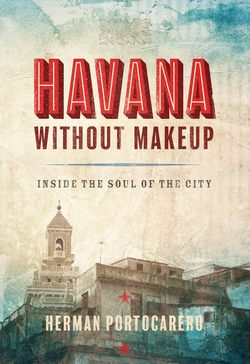Читать книгу Havana without Makeup - Herman Portocarero - Страница 19
На сайте Литреса книга снята с продажи.
Оглавление12.“ACHINADO”
Havana’s semi-clandestine vendors of antiques offer countless porcelain Buddhas for sale – of the Chinese variety, looking like fat Cantonese businessmen in their underwear, rather than stylish Indian ascetics. But the most authentic traces of the Chinese presence come from much deeper: they are in the Cuban blood. The racial mix of the first encounters was never undone. With the typical Cuban nonchalance about race, habaneros will argue that la mulata china – brown skinned with slanted eyes – is their most attractive woman. Mi chino is an affectionate nickname for a lover of any race. And every habanero even with slightly Asian features will be described as achinado, “Oriental-looking or ‘Chinesed.’”
A close friend of mine, happily equipped with such eyes, maintains that Havana is a chakra of the planet, where blood from all over had to converge. That’s a beautiful idea and I’m grateful for it. Nevertheless, after the Revolution, the Barrio Chino degenerated into a truly marginal ghetto, and the dream of joining the middle class, after all the misery the Cantonese immigrants had known back home, evaporated, together with the solace of opium and discreet brothels.
Here, as elsewhere in Havana under growing social controls, the ever stubborn life of the traditional city went underground, and the barrio became the focal point of clandestine gambling and lotteries, while those inhabitants too poor or too old to reach the United States – or scared off by horror stories of what the new emigrants underwent at the hands of people smugglers – waited for death in increasingly miserable hovels under the wise or cynical smiles of ancestral spirits. Many Chinese never fully learned Spanish, adding to their isolation.
Those who had reached prosperity were long since buried in the Chinese cemetery in Nuevo Vedado, where their opulent tombs can still be visited. The cemetery was closed for many years out of security concerns because Raúl Castro lived in an apartment just across the street. When he became president and moved in his turn to the western suburbs, the gates were unlocked. Many of the graves had been robbed in the meantime, because in the darker Congo-rites of Santería, Chinese skulls and bones are highly valued, apparently because the Chinese were thought to hide deep secrets. Was it because they were so discreet, spoke so little Spanish, and smiled against all adversity? The same phenomenon happened on an even wider scale at the Jewish cemeteries in Guanabacoa.
Even with the attempts at recuperation for the tourist trade, the barrio still contains some of Centro Havana’s dirtiest blocks, often to the dismay of the well-to-do Chinese visitors, who find little reason for ancestral pride here. But there is a culture of stubborn survival: among some of the worst Chinese restaurants of the world, sellers of little songbirds maintain an authentically Chinese tradition I remember from Sundays in Manhattan’s Chinatown. The delicate singing and chirping bring a little cheer to an otherwise depressing environment.
